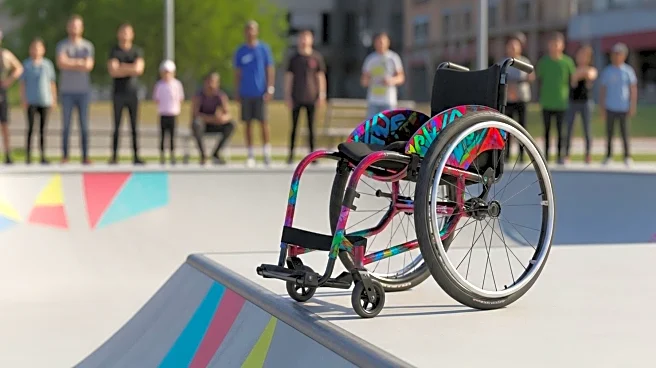What's Happening?
Wheelchair Motocross (WCMX), described as 'BMX in a wheelchair,' is gaining traction online, with athletes performing tricks and sharing their experiences on social media platforms like Instagram. The sport, which involves performing tricks over 90 seconds to earn points, has seen significant growth since its inception by Aaron 'Wheelz' Fotheringham. Despite its popularity, WCMX faces challenges in achieving Paralympic inclusion due to the need for a recognized governing body and compliance with international standards. Efforts are underway to codify rules and establish a formal structure for the sport, with hopes of inclusion in future Paralympic Games.
Why It's Important?
The rise of WCMX highlights the potential for adaptive sports to gain mainstream recognition and provide opportunities for athletes with disabilities. The sport's growing online presence demonstrates the power of social media in promoting niche sports and fostering community engagement. However, the challenges faced in achieving Paralympic inclusion underscore the complexities involved in formalizing new sports and the need for international collaboration and standardization. The situation reflects broader issues in the sports world regarding accessibility, representation, and the integration of adaptive sports into major sporting events.
What's Next?
Efforts to include WCMX in the Paralympics are ongoing, with hopes for a test event at the LA 2028 Games and potential inclusion in Brisbane 2032. The sport's governing bodies are working to meet the criteria set by the International Paralympic Committee, including establishing a recognized federation and compliance with anti-doping regulations. The continued growth of WCMX online and the establishment of formal competitions may bolster its chances for inclusion in future Paralympic Games.










